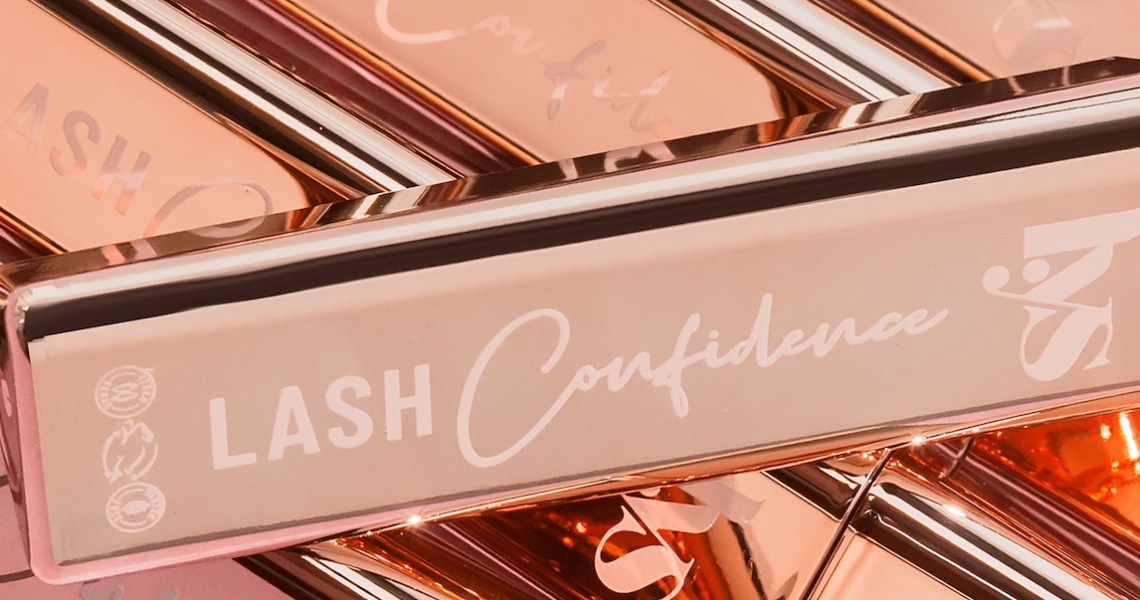When clean indie brand LYS Beauty launched its first mascara in May, the team knew it was a go-big-or-go-home moment.
The mascara, which is called Lash Confidence and sells for $19, was an opportunity to create a 360-degree campaign. More importantly, it was a chance to build momentum for the brand’s ethos around inclusivity and being a positive, supportive brand. The 2-year-old brand sells through Credo, Sephora, Thirteen Lune and QVC.
As a result of a strong visual campaign that included Sephora’s support, email and direct mail marketing, and influencer and editor gifting, the mascara became a top 5 selling SKU on the brand’s e-commerce website within the first five days — that’s out of more than 120 SKUs sold by LYS. Additionally, the brand’s site traffic increased by 271% on the day the mascara launched, compared to the same day last year. Compared to the brand’s lipstick launch on January 30, site traffic increased by 102%.
“Some of the best branding and best sales-performing product launches are those that are cohesive and follow suit on your brand identity, staying in that lane,” said Tisha Thompson, CEO and founder of LYS Beauty. “It’s like building a snowman — you just keep rolling, and it gets bigger. That has proven to be the case for us with this launch.”
The visual campaign was centered on the idea of confidence, not only because of the product’s name. Thompson said she didn’t feel confident while growing up because she didn’t see herself reflected in brand advertising. To that end, the Lash Confidence campaign is partly about honoring the brand’s work around diversity and inclusion, and the positive impact that has had on people. The individuals featured in the campaign talk about what makes them feel confident. People featured in the campaign include model Martha Craft and plus-size blogger Brenae Combs.
LYS kicked off the campaign through a teaser video on May 15, ahead of the May 25 launch. Featured on Instagram and TikTok, it showed a black viscous liquid being poured on a product silhouette with the phrase “Something is coming” overlaid. Another teaser was shared on May 18 before the product reveal on social media on May 20. On May 25, LYS had three posts on Instagram directing its customers to shop and buy the product via the Sephora App, where Lash Confidence was exclusively available for 24 hours, ahead of the brand’s own e-commerce site. That day, Lash Confidence became the No. 3 best-selling product on the Sephora app homepage. Lash Confidence is currently displayed in the front of all Sephora store locations, where it will remain until July 20.
LYS sent free mascara to 100 members of its ambassador community, which consists of 3,000 people. The program acts as a souped-up rewards program, as it accepts anyone who applies and is gamified. Members earn points for completing certain criteria like leaving a product review or posting a picture on Instagram. They also receive an affiliate commission for sharing coupon codes. Members can redeem points for gift cards or coupon codes.
“This allows us to get that shareability at no cost aside from sending the product. At this point, we have never done paid [influencers ads] because we don’t have the budget yet,” she said.
LYS then sent another 200 free mascaras to influencers and editors in a special pyramid box — the three box sides were designed to fall, revealing an upright mascara. Simultaneously, LYS sent marketing emails to its existing email subscribers, segmenting active customers and people who have not bought or have not bought for a while. It also leveraged SMS text messaging. About 20% of LYS customers subscribe to both email and SMS texts. Furthermore, LYS deployed a direct mail campaign to unengaged customers, sending them a coupon granting a special $15 price for the mascara. LYS sent approximately 10,000 mailers, with each card costing about $1 not including postage, which is currently about 63 cents.
“We decided to do the old school snail mail approach because people don’t get mail anymore. So it is a bit of a surprise and delight [moment],” she said. “We’re excited to see how that continues to perform as a ‘going back to the basics’ kind of approach in marketing.”




